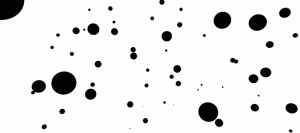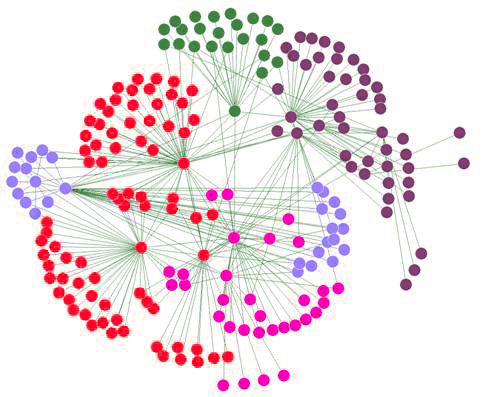
One of the things I know about open source and open communities is that as much as we want to break down silos, we have to form silos. Networks are complicated, open is messy and there are communities and sub communities and communities of communities…If you think about how complicated a meta view of “Open” is from the community perspective – what with Mozillians, Wikipedians, Creative Commoners, Red Hatters – and flat out ignore the sub communities – like the Open Educators, the Open Data folks, the Open Scientists, the Open Sourcers embedded in corporations – you’re still left with countless groups of people (I only named the ‘famous’ open communities!).
The meta picture of the Open Community is endless, multifaceted, complicated and all encompassing.
That’s what I’m seeing in Greenpeace too. An endless, complicated, multifaceted meta picture that I don’t have a name for (maybe “Activist Community”?). Right now I’m reading a lot. I’m sorting through the publications of Greenpeace. Looking through social media streams, sifting through the files people are sending me to give me context, reading blog posts, old org wide newsletters, gathering background. And it’s good. I’m being forced to slow down because although I already have a bunch of ideas, I am learning about a complicated community that functions differently from the community I grew up in.
At the moment, the culture at Greenpeace feels more traditional than those in open source. I have to slow myself down. Normally, I haul ass. My mind moves a million miles a second. I quickly decide on a plan of action and then I want to throw things into the world and see what sticks. I modify strategy as I go. I see what works, what doesn’t, what people care about and my strategies can be created or modified around that.

The perception non-community members have is too simplistic. The general public thinks Greenpeace is “a bunch of radical hippies who climb on stuff.” Just like they think Mozilla is “just a tech company”. But there’s more to these communities that I get to move around in. They’re made up of individuals. Humans with human nuances. The common thread I’m finding is that these humans, the ones who are moving in “open” or “activist” communities, want to make the world a better place.
We have to stop seeing our cultural perspectives as truth and start reaching inside of each others silos. This goes for both the traditional mindsets who are protecting their 40 year old legacy by placing it inside a safe, as well as for the open mindsets who are constantly screaming “it’s not that hard, just be open!” We need to start being empathetic to one another’s current situation and start drawing better connections between the “trying to make the world a better place” people.
That’s how we’re going to make the world a better place, by being innovative enough to realize our silos are unnecessary.
So a challenge: Today, spend just 5 minutes contributing to an issue you’ve never considered before. I don’t care what, just look outside your own silo and take notice of just how many “trying to make the world a better place” people there are.
If you need suggestions, get in touch – we can talk for a few minutes about your values, and I’ll point you to a project that deserves your 5 minutes.